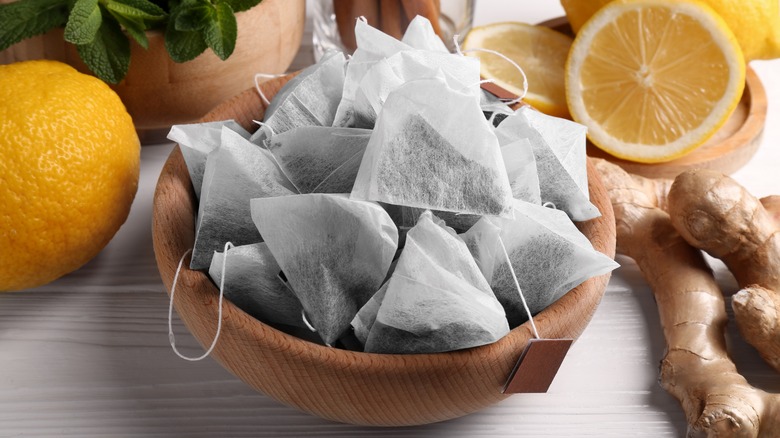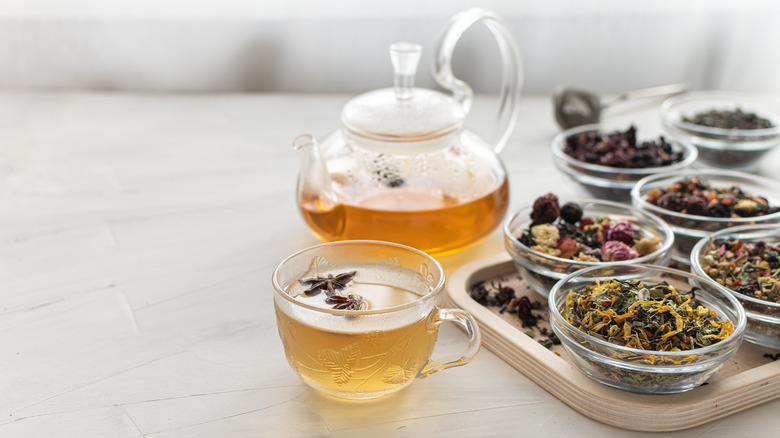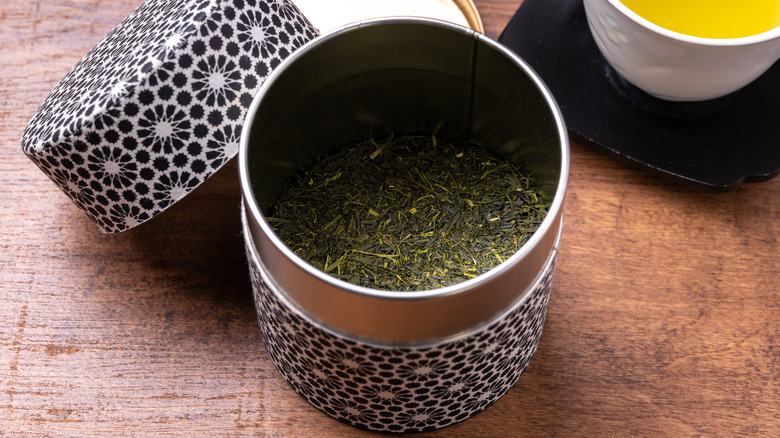Tell-Tale Sign Your Tea Bags Have Expired
When you hear "expired," a few things may come to mind: Clumpy milk, moldy bread, and meat with a concerning hue. These sights are what most expiration dates intend to save consumers from. While it depends on the manufacturer, expiration and "best by" dates for tea are most often concerned with the quality of the tea. Since tea tends to go stale rather than spoil, these dates signal that it is at least past its prime. However, over time, depending on how they are stored, the tea could become unsafe to drink due to bacteria or mold growth.
The true expiration of tea is marked by a change in aroma or the growth of mold. A quick whiff of your tea leaves or bags would normally reveal a lively aroma, whether floral, minty, or earthy. If this defining trait is long gone, it is a sign that your tea is at the end of its shelf life. If the aroma has faded, loss of flavor and nutrients are not far behind. While expired tea is still safe to drink most often, tea at the end of its lifespan loses many of its defining characteristics.
Losing scents and gaining new ones
The USDA's Food Safety and Inspection Service FoodKeeper Data reports that unopened boxes of tea bags can last 18-36 months, instant tea can last two to three years, and loose-leaf tea can last two years. Once removed from their original packaging, each of these forms of tea can only last six to 12 months. However, this lifespan is for the quality of the tea and not its ability to be consumed. While tea is frequently brewed past its shelf life, the resulting beverage is a shadow of its former self, lacking the flavor, aroma, and health benefits it would have had at its peak.
Other times, your tea will shift from its favorable aroma to a dubious, suspect, or just strange scent. If your tea now smells musty or stale, it is likely time to let it go. While these scents are not necessarily signs that something harmful is at play in your tea bags, they may not result in the lively brew you were hoping for.
Don't count mold out just yet
A mistake you might be making when brewing tea is storing it improperly to begin with since improper storage puts tea in danger of environmental factors like air, light, and moisture, which can lead to early expiration. These factors, especially moisture, can create an environment that helps harmful bacteria or mold grow on your tea. Because mold needs moisture to grow, it is important that you store your tea — loose leaf or bagged — in an airtight container.
Tea is likely one of the many pantry staples you've been storing wrong. Tea should also be kept in a cool, dry environment in an airtight container once removed from the original packaging. Unless it is sencha, matcha, or gyokuro tea, tea should not be stored in the refrigerator; it should also not be stored near a sink to reduce moisture exposure. Doing this will preserve the flavor of your tea while also maximizing its shelf life.
What happens when you accidentally eat mold depends on the individual, but mold can cause an allergic reaction or upset stomach, so proceed with caution if you suspect your tea is infected with mold. As is the case with other kitchen goods, nature's non-negotiable expiration date for tea is mold.


